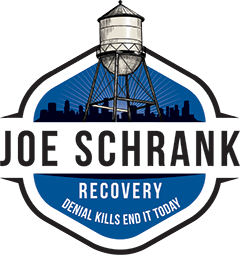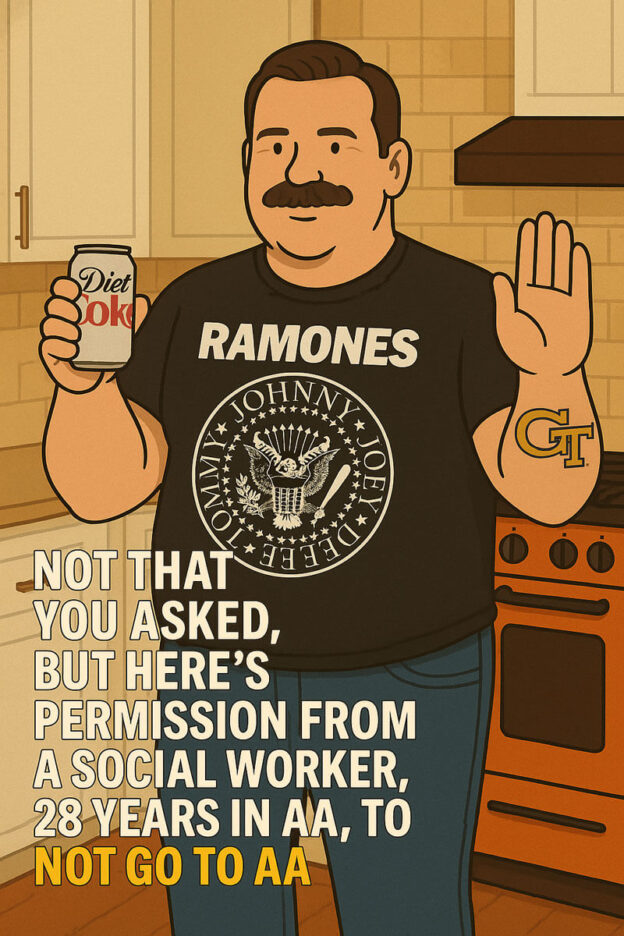So you’ve been “told” you have to join AA to stay sober? Spare me. A dude just celebrated 28 years without a drop and says flat‑out: you don’t need AA if it doesn’t serve you. And guess what? He’s exceptionally qualified. Congrats, Reddit!
AA isn’t the magic bullet—and rehab is a cash cow
Rehab is a $159 billion industry, monetizing what AA’s classic Tradition Six explicitly prohibits—“AA should never be a place of profit.” And yet, many rehabs are little more than AA indoctrination camps. Ironic, isn’t it? The program zealots have done the very thing forbidden by the system they claim to revere. Think I’m wrong? Go ahead—try to find a rehab that doesn’t require AA. There’s a lot of shiny rhetoric out there about “multiple pathways to recovery,” but very few walk that talk. Most just ring that bell while creating unspoken pressure to join them in a church basement.
The evidence paints a messy picture
AA helps some, not all
A Cochrane review found that manualized AA or 12‑Step Facilitation produces higher continuous abstinence rates than CBT, with cost savings. But other studies show that only people with deep engagement—like getting a sponsor, doing the steps, and attending regularly—tend to see results. And even then, it’s correlation, not causation. Meanwhile, dropout rates are high, and for many, it just doesn’t click.
Other pathways are legit too
SAMHSA’s working definition of recovery?
A process of change through which individuals improve their health and wellness, live a self‐directed life, and strive to reach their full potential.
That’s it. No mention of meetings, sponsors, slogans, or being guilt-tripped over a pot of stale coffee. Why is the coffee so bad? Is it penance for wrongdoing? Are we just undeserving of good coffee?
SAMHSA backs “many pathways to recovery”—including clinical treatment, meds, faith, peer support, self‑care, and secular groups like SMART Recovery, LifeRing, Refuge Recovery, Women for Sobriety, and more. You’re allowed to build a life without ever saying the Serenity Prayer in fluorescent lighting.
AA does offer value—just not a universal panacea
Yes, AA’s peer support, accountability, and spiritual connection help a lot of people. That’s real. Studies show it strengthens social bonds and supports impulse control. But if you’re not into spiritual surrender or sitting through 90‑minute sharefests that devolve into “who got a new coffee commitment,” you’re not broken. You’re just not into AA. That’s allowed.
The real secret to sobriety? Barriers, baby!
“The key to staying sober is putting as many barriers between you and a drink as you can.”
Build a fortress of…
- 🏋️ Workouts
- 💬 Therapy
- 💊 Medication (naltrexone, acamprosate, bupropion—work that out with your doctor, not your sponsor the plumber
- 🏘️ Community involvement
- 💪 Mutual-aid groups, including but not limited to AA
What keeps you grounded is what works. If that’s yelling affirmations in a cold plunge, go nuts. If it’s knitting with the local Unitarian recovery circle, good on you.
Bottom line
AA is a powerful tool—but just one tool. Want to skip the meetings? Go for it. Want to mix AA with therapy and meds? Cool. Want to just lift weights and volunteer your way sober? That’s legit. As long as you’re actively building barriers between yourself and a drink, you’re in recovery.
If you want to talk about it, I offer a free discovery session to see if I might be the right fit as your sobriety Sherpa. I’m certainly not right for everyone. Ask an ex-wife or two—or my mother. They’ll tell you that’s true.
No permission slip needed. But if you want one? Here.
Signed,
Joe Schrank—28 years sober, not dead, and still showing up.

